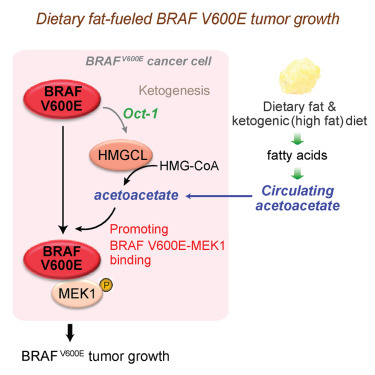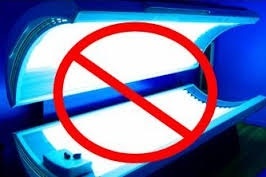Melanoma mutation likes fat for fuel
Diet can modulate growth-spurring effect in mice
EMORY HEALTH SCIENCES
Cancer cells love glucose, the simple sugar the body uses for energy, so a high-fat, low-carb diet should starve them, right?
Not so fast. Research in mice suggests that melanomas and other cancers driven by a particular mutation (BRAF V600E) will grow faster in response to a high-fat diet. In addition, lipid-lowering agents such as statins curb these cancers’ growth, even in the context of a more normal diet.
The results are scheduled for publication in Cell Metabolism.
While the findings cover only one mutation and need to be tested clinically, they sketch out the concept of a “precision diet,” tailored to an individual patient’s cancer.
…
Most cancer cells display enhanced glucose uptake, a phenomenon known as the Warburg effect. A low-carb diet has been tried as a clinical countermeasure in a limited way, mainly in brain cancer. In contrast, a possible implication of the Winship researchers’ results is that people fighting a cancer with a BRAF V600E mutation should avoid low-carb diets.
…
One of the alternative energy sources produced by ketogenesis is acetoacetate. Within cancer cells with the V600E mutation, acetoacetate production is stimulated, the Winship researchers had found. On top of that, acetoacetate binds the mutated B-raf protein and promotes its oncogenic activity, forming a cycle of positive feedback.
The Winship researchers wanted to test whether V600E cancer cells would respond to external acetoacetate. A ketogenic diet with very low carbohydrates, like an Atkins diet, can cause acetoacetate levels in the body to rise. Fasting can also trigger the same effect.
When researchers fed mice a diet with more than 90 percent of its calories from fat, grafted tumors derived from V600E melanoma cells grew faster (twice as large over four weeks) than in mice fed a normal diet. This was not true of tumors derived from melanoma cells with other oncogenic mutations.
Above contains article highlights. Click below to read complete article.
Source: EurekAlert!


